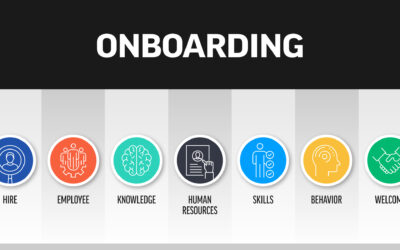With the rate of recent rapid technological changes, it’s no surprise that businesses must adapt to new trends constantly. This is mainly true for independent agents who are experiencing pressure to keep up with digital transformation. Since customers are increasingly turning to digital channels for their insurance needs, it is imperative for professionals to embrace these innovations.
In this article, we will explore the concept of digital evolution in insurance agencies and how we can successfully implement it to stay competitive.
Understanding digital transformation
Digital transformation integrates advanced digital technologies into different aspects of business operations. It can involve adopting new tools, platforms, and strategies to enhance a business’s effectiveness and customer satisfaction.
For independent insurance agents, it can mean shifting from traditional, paper-based procedures to digital solutions that will allow for faster and more streamlined interactions with consumers, including data analytics, cloud computing, and digital marketing tools.
Advantages of digital transformation
It may seem daunting to completely change these long-standing processes, but for independent agents the benefits of digital innovation are numerous. This can include:
- Improving efficiency: With digital tools, professionals can streamline administrative tasks, reduce paperwork, and automate operations. This not only saves time, but it also allows insurance managers to focus on what matters most—offering service to their clients.
- Increasing profit and loyalty: Insurance experts can reach a wider audience and attract new clients with these recent tech advances. Additionally, personalized online services can enhance the overall customer experience—leading to higher retention rates.
- Improving company culture: Adopting digital tools promotes a culture of innovation and collaboration among teams. It also allows agents to work remotely, providing flexibility and work-life balance.
Taking advantage of these benefits will allow professionals to not only keep up with the trends but also thrive in them.
Disadvantages of digital transformation
Although there are many positive aspects to this process, agents also must be aware of the potential challenges that come with digital innovation. Which could include the following:
- Initial cost: The acquisition of software, hardware, and staff training can strain the budget of insurance agents. However, the long-term benefits often outweigh the starting costs.
- Resistance to change: Not all employees may embrace digital evolution wholeheartedly. Some may resist change, which can hinder the adoption of new technologies.
- Data security concerns: This process comes with the risk of data breaches and cyberattacks. So, it’s essential to invest in secure cybersecurity measures to protect client data. Implementing secure information handling practices builds trust with clients and ensures compliance, a vital aspect for independent agents in today’s tech-driven landscape.
These challenges can be managed by developing a clear strategy and addressing them before implementation.
Innovative technologies for agents
Now that we understand both the advantages and disadvantages of digital transformation let’s explore the technologies that can drive this evolution:
CRM software
Customer relationship management software helps manage and track a company’s interactions with clients and prospects. It also helps to streamline the process of handling leads, automating follow-ups, and providing a personalized experience to consumers.
Digital marketing tools
Digital marketing platforms, such as email marketing and social-media advertising, allow independent agents to reach a broader audience and generate leads. These tools also can help them connect with potential buyers and nurture them through the sales process.
Cloud-based systems
With cloud-based systems, agents can store and access consumer information, policies, and documents securely from anywhere, ensuring they always have the information they need anytime and anywhere.
These are just a few innovative advances that insurance professionals can use to enhance their operations and serve their clientele better.
Leveraging technological evolution
Technology only can be innovative if it is adopted into the entire operation. So, here are some tips to help make this transition advantageous for everyone:
- Data-driven decision making: Leverage data analytics to make informed decisions. This can be done by looking at client behavior and preferences to tailor your offerings and marketing strategies effectively.
- Agile adaptation: Technology is continuously altering, so flexibility and immediate implementation are vital to staying ahead of the competition.
- Security first: You must prioritize data security by investing in robust cyber security measures to ensure your consumers’ information is protected.
- Listening to the Voice of the Customer: VoC allows professionals to receive feedback and insights, which can shape business strategies and improve client satisfaction.
Initiating these strategies can be tedious and challenging, but in the long run, these new technologies will make operations more efficient and provide excellent dividends.
The key is approaching digital transformation as an opportunity rather than a threat. So, by embracing these changes, independent agents can enhance their operations, elevate their customer experience, and ultimately stay ahead in the insurance industry.
Katie Brenneman
Katie Brenneman is a passionate writer specializing in lifestyle, mental health, education, and fitness-related content. When she isn't writing, you can find her with her nose buried in a book or hiking with her dog, Charlie. To connect with Katie, you can follow her on Twitter.






